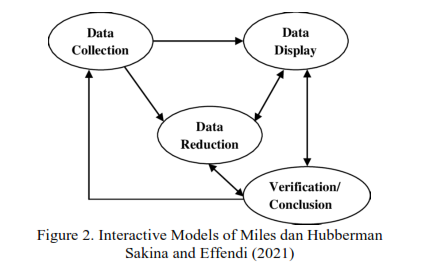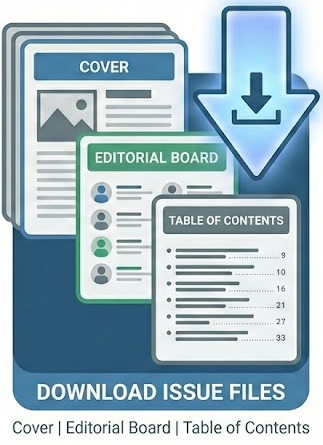Evaluating the Impact of a Women's Empowerment Program on Environmental Sustainability through Eco-Friendly Fertilizer Production
DOI:
https://doi.org/10.30736/seaj.v6i2.1114Keywords:
Eco Friendly Corn Cob Fertilizer, Local Environmental Waste, Women’s School ProgramAbstract
Evaluating the Impact of a Women's Empowerment Program on Environmental Sustainability through Eco-Friendly Fertilizer Production. The high potential in Grenden Village as a corn producer has the side effect of increasing corn plant waste. Most people do not utilize corn waste, especially corn cobs. Corn waste is rich in organic matter and can be reused for plant fertilization. Corn cobs can be used as an alternative fertilizer that can replace the role of chemical fertilizers. PPK Ormawa Team of HMPS S1 Science Education ASE held training for village residents through the Gayati Women's School to provide education and practical activities to residents to utilize corn waste as organic fertilizer. This research aims to evaluate the effectiveness of a training program in teaching local women to utilize corn cobs as organic fertilizer. This research was conducted using a descriptive qualitative method that focuses on describing the results obtained in real terms based on conditions in the field. Data were collected through observation, activity documentation, and interviews. The implementation of the activity was carried out in Grenden Village, Puger District in August 2024. The target of this activity was mothers who were members of the Gayatri Women's School, totaling around 20 people. The object of this activity is corn cobs which are one of the local wastes in Grenden Village. Evaluation of this activity through the results of the pretest and post-test shows that education and training in making fertilizer from Corn Cobs have a positive impact on the community such as waste reduction, economic improvement, soil health, and empowerment education.
Downloads
References
Elvania, N. C., C. R. I. Agustin., A. D. Pratiwi., A. S. M. T. A. Setiawan., A. A. G. Atmaji., Suhartono., dan M. S. Udin. (2024). Sosialisasi Pembuatan Pupuk Organik Sebagai Upaya Mengurangi Limbah Tongkol Jagung. Surya Abdimas, 8 (2). 165-170.
Paulus, J. M., J. Najoan., P. C. H. Supit., dan D. S. Tiwow. (2020). Aplikasi POC (Pupuk Organik Cair) Daun Gamal Untuk Meningkatkan Pertumbuhan dan Produksi Jagung Manis Berbasis Organik. Jurnal Pengembangan Penyuluhan Pertanian, 17 (31). 38-45.
Rohmaniya, F., R. Jumadi., dan E. S. Redjeki. (2023). Respon Pertumbuhan dan Hasil Tanaman Jagung Manis (Zea mays saccharata Sturt) Pada Pemberian Pupuk Kandang dan Pupuk NPK. Jurnal Tropicorps, 6(1). 37-51.
Rusandi., dan Rusli, M. (2021). Merancang penelitian kualitatif dasar/deskriptif dan studi kasus. Al-Ubudiyah: Jurnal Pendidikan Dan Studi Islam, 2(1), 48-60.
Sahid., B. W. Utomo., F. A. Arrahman., F . P. Anandia., L. A. Atthariq., dan F. N. Maulidina. (2023). Penerapan Teknologi Mesin Pencacah Tongkol Jagung dan Mixer untuk Meningkatkan Produksi Pupuk Organik Pada Kelompok Tani Desa Jragung. Jurnal Hilirisasi Technology Pengabdian Masyarakat ,4 (2),106-118.
Sakiah, N. A., & Effendi, K. N. S. (2021). Analisis kebutuhan multimedia interaktif berbasis PowerPoint materi aljabar pada pembelajaran matematika SMP. JP3M (Jurnal Penelitian Pendidikan Dan Pengajaran Matematika), 7(1), 39-48.
Rohmah, A. N., Septaria, K., & Santoso, A. (2024). THE IMPACT OF PHET-ASSISTED EXPERIMENTAL LEARNING METHODS ON STUDENTS'SCIENCE PROCESS SKILLS IN SCIENCE TOPICS. EDUPROXIMA (JURNAL ILMIAH PENDIDIKAN IPA), 6(3), 913-921.
Azzahroh, S. N. F., Septaria, K., & Wulandari, S. A. (2024). Pengaruh Model Pembelajaran Inkuiri Bermuatan Nature Of Science (NOS) Terhadap Argumentasi Ilmiah Pada Topik Zat Aditif. Jurnal Penelitian Sains dan Pendidikan (JPSP), 4(1), 13-21.
Septaria, K., & Rismayanti, R. (2022). The effect of scientific approach on Junior High school students’ Scientific Creativity and Cognitive Learning Outcomes. Jurnal Penelitian dan Pengkajian Ilmu Pendidikan: e-Saintika, 6(3), 173-189.
Septaria, K. (2022). Kemampuan Bertanya Versus Hasil Belajar Kognitif Mahasiswa: Analisis Korelasi Kemampuan Bertanya Pada Level Mahasiswa IPA. EDUPROXIMA (Jurnal Ilmiah Pendidikan IPA) Universitas Bhinneka PGRI Tulung Agung, 4(2), 60-71.
Septaria, K., & Fatharani, A. (2022). Manga versus webtoon: Alternative science learning module based on Dr Stone. Jurnal Inovasi Pendidikan IPA, 8(1), 11-22.
Septaria, K., & Dewanti, B. A. (2022). Analisis kepuasan mahasiswa Pendidikan IPA menggunakan learning management system Brightspace pada matakuliah Mitigasi Bencana. JIPVA (Jurnal Pendidikan IPA Veteran), 6(1), 19-33.
Tamara, N. Y., R. Sutrisna., L. Liman., dan E. Erwanto. (2024). Pengaruh Komposisi Campuran Tongkol Jagung dan Ampas Tahu Terhadap Kandungan Lemak Kasar, Abu, Betn, dan TDN Produk Fermentasinya. Jurnal Riset dan Inovasi Peternakan, 8(2), 291-299.
Tangngisalu, J., A.A.Fahrial., H. Sjahruddin., F. K. Dwiputra., M. S. Rahman., M. T. D. Putra., Z. Hakim., dan H. A. Thamrin. (2023). Peningkatan Ekonomi Masyarakat Melalui Inovasi Tanaman Jagung. Bantenese Jurnal Pengabdian Masyarakat, 5(2), 446-459.
Widiasri, N. L. P., A. Husni., R. Sutrisna., dan L. Liman. (2024). Pengaruh Dosis Ragi Tempe Pada Pembuatan Tempe Tongkol Jagung Terhadap Kandungan Nutrisi Untuk Pakan Ternak. Jurnal Riset dan Inovasi Peternakan, 8(1), 100-106.

Downloads
Published
How to Cite
Issue
Section
License
Copyright (c) 2024 Lailiatul Qomariah, Desi Ummi Rusdiana, Sitti Widatul Hasanah, Afif Rafi Alauddin Athallah, Bagas Permana Putra, Ika Dewi Sumiati, Eka Puspita Kartika Sari, Zakaria Sandy Pamungkas, Sri Wahyuni

This work is licensed under a Creative Commons Attribution-ShareAlike 4.0 International License.
Authors who publish with this journal agree to the following terms:
- Authors retain copyright and grant the journal right of first publication with the work simultaneously licensed under a Creative Commons Attribution-ShareAlike 4.0 International License that allows others to share the work with an acknowledgment of the work's authorship and initial publication in this journal.
- Authors are able to enter into separate, additional contractual arrangements for the non-exclusive distribution of the journal's published version of the work (e.g., post it to an institutional repository or publish it in a book), with an acknowledgment of its initial publication in this journal.
- Authors are permitted and encouraged to post their work online (e.g., in institutional repositories or on their website) prior to and during the submission process, as it can lead to productive exchanges, as well as earlier and greater citation of published work (See The Effect of Open Access).

This work is licensed under a Creative Commons Attribution-ShareAlike 4.0 International License.








